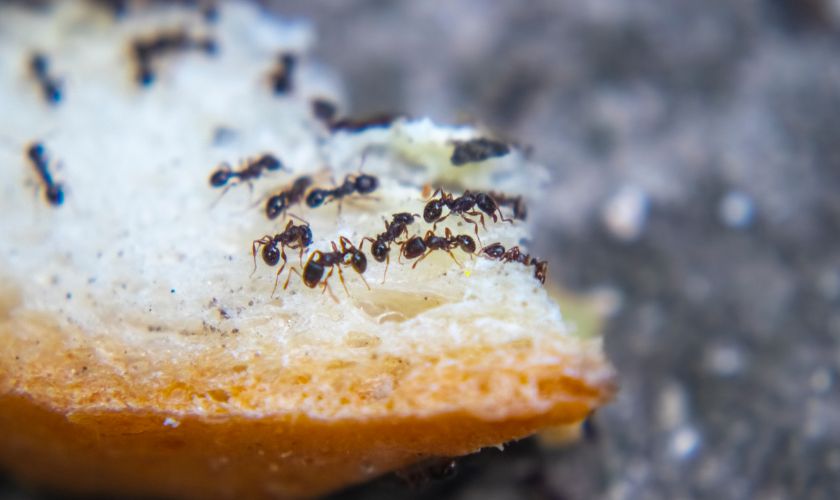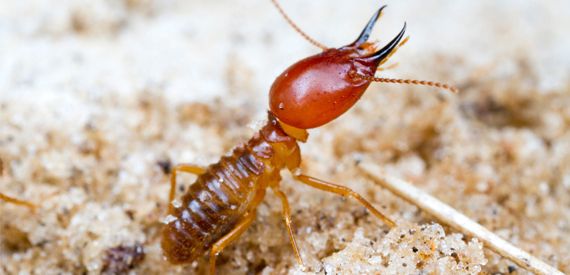Total Ant Control: Approaches and Services to Defeat Ant Issues
Total Ant Control: Approaches and Services to Defeat Ant Issues
Blog Article
Ecological Influence of Parasite Control: Balancing Performance With Sustainability
The ecological effect of insect control is a vital problem that calls for a fragile equilibrium between attaining efficiency in making certain and managing insects sustainability of our ecological communities. As we aim to shield our plants, homes, and health from the risks posed by bugs, the approaches we use can inadvertently harm the setting. From the usage of damaging chemicals that leak right into our soil and water to the unplanned consequences on non-target species, the repercussions of standard insect control methods are significant. However, there are arising strategies that provide expect a much more sustainable approach to pest administration. These services not just aim to address the prompt bug troubles yet likewise think about the lasting health and wellness of our world.
Damaging Chemicals in Parasite Control
The use of damaging chemicals in bug control presents considerable ecological and health risks that require careful consideration and reduction techniques. Herbicides, pesticides, and pesticides are typically utilized to remove parasites, but their extensive application can lead to unplanned effects. These chemicals can pollute soil, water sources, and the air, impacting not just the targeted pests but also beneficial pests, wild animals, and humans.

To attend to these threats, integrated parasite management (IPM) techniques are being advertised as an extra sustainable alternative. IPM includes a combination of methods such as organic control, environment control, and the targeted usage of chemicals as a last option (ant control waxhaw nc). By taking on a holistic strategy to pest control, we can decrease the ecological and wellness impacts linked with damaging chemicals while properly handling pest populaces
Effect on Non-Target Species
Taking into consideration the unexpected consequences of parasite control approaches, the effect on non-target species is a critical facet that calls for thorough analysis. While bug control measures intend to target specific parasites, other microorganisms in the environment might be unintentionally influenced. Non-target types, consisting of useful pests, birds, mammals, and also plants, can suffer direct or indirect damage from pesticide applications or biological control methods.
Insecticides designed to fight a specific bug bug may hurt pollinators like bees or all-natural predators such as ladybugs. Biological control representatives, if not species-specific, can posture threats to unintentional targets, disrupting the environmental equilibrium.
To alleviate the effect on non-target types, incorporated pest management (IPM) strategies that emphasize an all natural strategy to pest control are advised. These techniques prioritize making use of environmentally friendly techniques, decreasing damage to advantageous microorganisms while properly taking care of pest populaces. Conducting comprehensive danger evaluations and keeping an eye on the results of pest control initiatives are necessary steps in protecting non-target varieties and advertising overall community health.
Dirt and Water Contamination
Unintended environmental repercussions of pest control methods prolong past impacting non-target species, with considerable implications for soil and water contamination - ant control. Pesticides, herbicides, and chemical plant foods made use of in parasite control can leach right into the soil and pollute groundwater, posturing a threat to both terrestrial and marine communities.
Water contamination is an additional critical concern associated with parasite control practices. To mitigate dirt and water contamination from bug control activities, integrated pest monitoring strategies that focus on sustainability and lessen chemical inputs are vital.
Air Air Pollution From Pesticide Usage
Exposure to airborne pesticides during agricultural applications postures a substantial concern for air contamination control actions. Additionally, chemical drift, where chemicals are lugged by the wind to unintended areas, can lead to the contamination of neighboring ecosystems and water bodies.

Strategies for Sustainable Pest Control
In the world of agricultural techniques, implementing lasting parasite control methods is paramount for preserving eco-friendly balance and safeguarding plant yields. Sustainable bug control highlights the usage of eco-friendly techniques to take care of parasite populations efficiently while lessening injury to non-target organisms and communities. Integrated Parasite Management (IPM) is an extensively adopted strategy that integrates organic, cultural, physical, and chemical control techniques to achieve long-term insect administration services.
Crop rotation and diversity are additionally efficient techniques to interfere with pest life cycles and create less favorable problems for pests to thrive. Ultimately, by integrating these sustainable pest control techniques, farmers can accomplish a balance in between pest monitoring performance and environmental stewardship.
Conclusion
In conclusion, the environmental impact of parasite control approaches need to be thoroughly considered to stabilize performance with sustainability. Damaging chemicals made use of in insect control can lead to soil and water contamination, air pollution, and damage non-target species - termite control. It is important to implement sustainable parasite control techniques to decrease these negative effects on the atmosphere and advertise a much healthier environment for future generations
By taking on a holistic technique to pest control, we can minimize the environmental and health and wellness impacts connected with harmful chemicals while properly managing pest populaces.

To reduce the air contamination triggered by pesticide use, it is vital to adopt incorporated parasite monitoring methods that focus on the usage of non-chemical parasite control methods, such as plant rotation, all-natural predators, and resistant crop ranges. Lasting insect control stresses the use of ecologically friendly approaches to handle pest populaces properly while decreasing damage to non-target microorganisms and ecological communities. additional info Integrated Parasite Management (IPM) is an extensively embraced technique that combines biological, cultural, physical, and chemical control techniques to attain long-term pest administration remedies.
Report this page